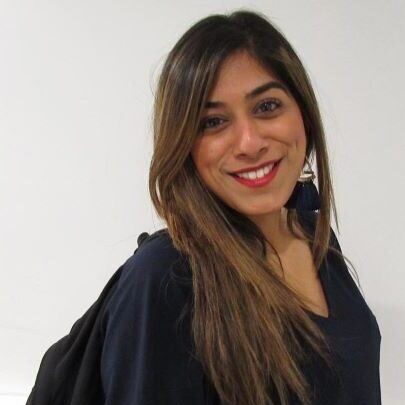‘Are Newsrooms Representing The Communities They Serve?’ Reflections Of A Media Scholar
10 January 2019

In this article an Aziz Foundation media scholar, Sabah Choudhry, reflects on her experience speaking at the panel session ‘Are newsrooms representing the communities they serve to keep their trust?’ at the Society of the Editors annual conference.
The last few months have been mega busy for me, and the Aziz Foundation have played a large role in this.
In November last year, I was invited by the charity to sit on a panel at the prestigious Society of Editor’s annual conference. The conference, a two-day event held this year in Manchester, is a highlight in the industry calendar giving those working in media the opportunity to engage in discussions surrounding press and broadcasting freedom, ethics, and the culture and business of news media.
I was invited to sit on the panel: ‘Are newsrooms representing the communities they serve to keep their trust?’. My contribution was largely rooted in my own personal experiences working within the British media these past two years. Certainly, in the more mainstream newsrooms, I’ve found myself, and continue to find myself, one of few people who aren’t white, middle-aged, or belonging to the XY chromosome species—otherwise known as man.
My main argument on the panel was that while there are some ‘on the surface’ attempts to make media more inclusive, the reality is that current newsrooms are quite to the contrary, and that media organisations need to work harder to diversify these spaces, champion minorities, and make their storytelling more representative of minority communities and of society at large. I also touched on social class, a factor which may hold some minority groups back from entering media, as generally to get your foot in any door, the unwritten expectation is that you will undertake copious free work in the form of unpaid (or low paid) internships which, understandably, not everyone can afford to do.
In the build up to the speech and panel discussion, my anxiety began to consume me, and I nearly had a panic attack in my room. I was at a lavish five star hotel in Salford, at a conference full of mainly Chief Executives, Managing Editors, barristers, and senior journalists more than double, and in some cases triple, my age, and I didn’t know anyone. Looking around the conference room, I felt so out of place; like I didn’t belong there. It was an unnerving, unsettling experience. What got me through was reminding myself of why I was there in the first place. For far too long, institutions have paid lip service to discussions surrounding inclusion and diversity, but are doing very little to bring these changes to fruition. I had every right to be there, just as much as anyone else; and my purpose was to make that known during my speech.
In the end, it worked out okay and I got through it. I also met some lovely people on the way that really encouraged me to continue talking truth to power. I had a number of Managing Editors approach me afterwards for advice on how to best diversify their media companies; a lot of them recognised that change needed to be made, but they were unsure of how to best go about achieving it.
Lesson learnt: If it scares you, DO IT. If it feels wrong, SAY IT. If it needs fixing, CHANGE IT.
Everyone’s always waiting or hoping for someone else to mend the world’s problems, but unless we take responsibility to make a small change ourselves – in whatever way we can, and lead from the forefront, it’ll continue to be a long, slow trudge out of the seemingly problematic status quo.
My December was filled with work placements. The Aziz Foundation helped me in securing work experience at BBC Newsgathering and Sky News; both of which were highly valuable experiences in different ways.
At the BBC I fluctuated between departments, dipping in and out of BBC politics, health, investigations and radio. My highlight was probably working at BBC Millbank where all the politics planning and filming takes place. It was a great opportunity to go out and doorstep politicians, meet and film with senior MPs outside Parliament and much more. Brexit does not sleep, let me tell you!
At Sky News, I was able to write presenter cues for television, assist with editing packages, and write stories that were published online. One of my pitched stories on ‘blackfishing’ was the leading story on Sky News Snapchat and received just under a million views! These are some examples of topical stories that I wrote:
https://news.sky.com/story/meghan-and-kate-join-queens-lunch-amid-rift-rumours-11586167
I am so thankful to the Aziz Foundation for their constant guidance, support, and the opportunities they have secured for me during my MA Broadcast Journalism. Words alone cannot express my gratitude. Thank you for believing in me when the statistics do a very good job at scaring me off otherwise!